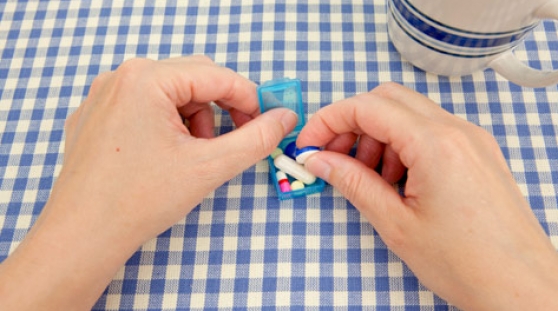Congestive Heart Failure Health Center
Table of Contents

Early diagnosis and treatment can help people who have heart failure live longer, more active lives. Treatment for heart failure will depend on the type and stage of heart failure (the severity of the condition).
The goals of treatment for all stages of heart failure include:
- treating the condition's underlying cause, such as coronary heart disease (CHD), high blood pressure, or diabetes
- reducing symptoms
- stopping the heart failure from getting worse
- increasing your lifespan and improving your quality of life
Treatments usually include lifestyle changes, medicines, and ongoing care. If you have severe heart failure, you also may need medical procedures or surgery. Simple lifestyle changes may help you feel better and control heart failure. The sooner you make these changes, the better off you'll likely be.
A Heart Healthy Diet
Following a heart healthy diet is an important part of managing heart failure. In fact, not having a proper diet can make heart failure worse. Ask your doctor and health care team to create an eating plan that works for you.
A healthy diet includes a variety of vegetables and fruits. It also includes whole grains, fat-free or low-fat dairy products, and protein foods, such as lean meats, eggs, poultry without skin, seafood, nuts, seeds, beans, and peas.
A healthy diet is low in sodium (salt) and solid fats (saturated fat and trans fatty acids). Too much salt can cause extra fluid to build up in your body, making heart failure worse. Saturated fat and trans fatty acids can cause unhealthy blood cholesterol levels, which are a risk factor for heart disease.
A healthy diet also is low in added sugars and refined grains. Refined grains come from processing whole grains, which results in a loss of nutrients (such as dietary fiber). Examples of refined grains include white rice and white bread.
A balanced, nutrient-rich diet can help your heart work better. Getting enough potassium is important for people who have heart failure. Some heart failure medicines deplete the potassium in your body. Lack of potassium can cause very rapid heart rhythms that can lead to sudden death.
Potassium is found in foods like white potatoes and sweet potatoes, greens (such as spinach), bananas, many dried fruits, and white beans and soybeans.
Talk with your health care team about getting the correct amount of potassium. Too much potassium also can be harmful.
Fluid Intake
It's important for people who have heart failure to drink the correct amounts and types of fluid. Drinking too much fluid can worsen heart failure. Also, if you have heart failure, you shouldn't drink alcohol.
Talk with your doctor about what amounts and types of fluid you should have each day.
Medicines
Your doctor will prescribe medicines based on the type of heart failure you have, how severe it is, and your response to certain medicines. The following medicines are commonly used to treat heart failure:
- diuretics (water or fluid pills) help reduce fluid buildup in your lungs and swelling in your feet and ankles
- ACE inhibitors lower blood pressure and reduce strain on your heart. They also may reduce the risk of a future heart attack.
- aldosterone antagonists trigger the body to get rid of salt and water through urine. This lowers the volume of blood that the heart must pump.
- angiotensin receptor blockers relax your blood vessels and lower blood pressure to decrease your heart's workload
- beta blockers slow your heart rate and lower your blood pressure to decrease your heart's workload
- isosorbide dinitrate/hydralazine hydrochloride (BiDil) helps relax your blood vessels so your heart doesn't work as hard to pump blood.
- Studies have shown that this medicine can reduce the risk of death in African Americans. More studies are needed to find out whether this medicine will benefit other racial groups.
- digoxin makes the heart beat stronger and pump more blood.
Medical Procedures and Surgery
As heart failure worsens, lifestyle changes and medicines may no longer control your symptoms. You may need a medical procedure or surgery.
If you have heart damage and severe heart failure symptoms, your doctor might recommend a cardiac resynchronization therapy (CRT) device or an implantable cardioverter defibrillator (ICD).
In heart failure, the right and left sides of the heart may no longer contract at the same time. This disrupts the heart's pumping. To correct this problem, your doctor might implant a CRT device (a type of pacemaker) near your heart.
This device helps both sides of your heart contract at the same time, which can decrease heart failure symptoms.
Some people who have heart failure have very rapid, irregular heartbeats. Without treatment, these heartbeats can cause sudden cardiac arrest. Your doctor might implant an ICD near your heart to solve this problem. An ICD checks your heart rate and uses electrical pulses to correct irregular heart rhythms.
People who have severe heart failure symptoms at rest, despite other treatments, may need:
- a mechanical heart pump, such as a left ventricular assist device. This device helps pump blood from the heart to the rest of the body. You may use a heart pump until you have surgery or as a long-term treatment.
- heart transplant. A heart transplant is an operation in which a person's diseased heart is replaced with a healthy heart from a deceased donor. Heart transplants are done as a life-saving measure for end-stage heart failure when medical treatment and less drastic surgery have failed.
- experimental treatments. Studies are under way to find new and better ways to treat heart failure.
